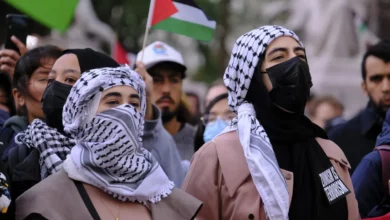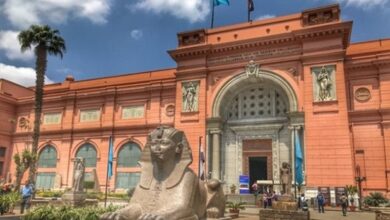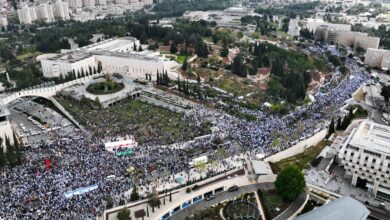The revolutionaries of Tahrir Square are split as to whether they should–or will–vacate the square following former President Hosni Mubarak’s resignation Friday evening.
Although many already left the square, a large number refused to move until other demands are met.
Mubarak’s resignation fulfilled what was widely considered to be the protesters’ main demand. Protests and sit-ins across Egypt have lasted 18 days.
The Youth of the Anger Uprising Coalition called for an evacuation of Tahrir Square. Other informal groups participating in the revolution reject the call. They believe they should not let go of the revolution’s primary symbol and gathering point until their demands are met in full.
After over two weeks of continuous protests, some have already answered the call to pack up their tents and go home.
“I think now we have what we need to move along to the next phase of rebuilding Egypt. We achieved enough on this front, and now we need to start focusing on change outside of Tahrir square,” said Mahmoud Abbas, a 30 year-old teacher. Abbas, who has camped out in Tahrir almost every day since 28 January, thinks that those who wish to remain in Tahrir have grown too “fond” of the place. They “need to start thinking about where else they can be useful,” he says.
Some believe that people should begin trying to exert pressure for change in other ways besides protesting.
Amr al-Mahdy, a 35 year-old interior designer, has been an active member of the Tahrir Square community since protests initially began on 25 January. He informally organized groups of people to provide clothing, food, and sanitary services to the protesters. Today he stood in front of a tent that served as a center for Tahrir clean-up services. Al-Mahdy was overwhelmed with the amount of volunteers and sponsors that joined him. He now thinks, however, that the work in Tahrir is over.
“There’s a split between a group who wants to stay and wants to leave. I personally think that leaving is better,” he said.
Al-Mahdy plans to make use of the increased social conscience resulting from the revolution to organize groups focusing on cleaning up different areas of Cairo. “Every month we will focus on a different area,” he said.
Still, a large group planned to continue camping out in the square.
“We are not leaving until all our demands our fulfilled,” said Mohamed Abdel’al, a 22 year-old student. Abdel’al remains unsatisfied by Mubarak’s resignation and the army’s subsequent statements, which pledged to transition the country to a civilian government without specifying a timetable. “Until they cancel the Emergency Law, and dissolve both Houses of Parliament, it doesn’t work,” he added.
“The main slogan is, ‘Down with the system.’ Until now, only one section of the system has fallen,” said Ahmed Makram, a 36 year-old lawyer. Makram frequented the square for six days. He said that he decided to postpone his wedding until after revolution is successful.
The military on Saturday attempted to open Qasr al-Aini, an important thoroughfare leading to the square, to traffic. Some protesters, emboldened by their sovereignty in Tahrir since 28 January, refused; they formed a human barrier.
“We can’t trust the word of the military or anyone right now. We need absolute guarantees, or actions to convince us,” said Shereen Abdelhaleem, a 28 year-old lawyer. Her brother, Mohamed, a 26 year-old taxi driver, said “I do not understand politics, but I trust the people here who do understand to let me know when we get the correct guarantees.” Pointing out those he trusted, he gestured to a podium, known as “The Broadcast,” on the opposite side of the square.
“We and many others will not be moving until the other demands are met,” said Salah Yassin, one of the organizers at “The Broadcast.”




